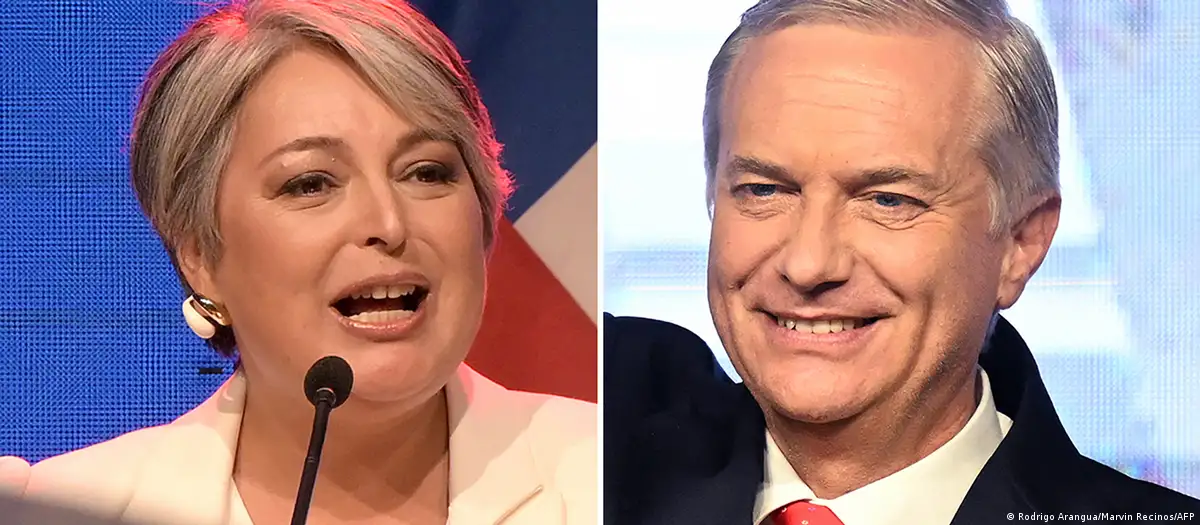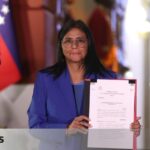
The center-right is the big loser, and radical conservatism has grown the most in the Legislature. Presidential elections are the first with mandatory voting since democratization in 1990.
Chile will have the second round of presidential elections between communist candidate Jeannette Jara and ultra-rightist José Antonio Kast. President Gabriel Boric’s candidate, who is a former Minister of Labor and Social Security, obtained 26.8% of the vote on Sunday (16/11), and her opponent 23.9%.
Jara’s lead was tighter than predicted by the latest polls, which indicated that she would obtain 30% of the votes. The big loser of the night, however, was the center-right, whose candidate Evelyn Matthei came in fifth place (13.47%) after being devoured by two increasingly popular ultra-right forces.
Kast had already surpassed the right-wing candidate Sebastián Sichel, minister during Sebastián Piñera’s government, in the elections four years ago. The ultra-right has not won the duel against the right since Chile’s return to democracy in 1990 – and now it has achieved important victories in both the dispute for the Executive and the Legislative.
Voting was mandatory in these elections for the first time since post-dictatorship democratization, which led to almost 85% of voters going to the polls. This is considered a record turnout in the history of Chilean presidential elections.
In the 2021 election, when there was no fine for those who did not vote, turnout was 47.6%. This year’s punishment could reach 104 thousand Chilean pesos (R$592).
Crime on the agenda
Despite Chile being considered one of the safest countries in Latin America and the Caribbean, the fight against crime was central to the electoral campaign. Other prominent themes were Chileans’ concerns about immigration, the economy and unemployment.
On the night of the first round, Kast took the stage at his campaign headquarters to proclaim a “radical change” in the country’s security.
Kast’s support base also includes young people, who want to lead the ultra-right to the presidency by popular vote for the first time | Esteban Felix/AP Photo/picture alliance
“We needed a candidate with a firm hand to bring economic growth, attract investment, create jobs, strengthen the police and give them support,” said Ignacio Rojas, 20, a supporter of the ultra-rightist. “Chile is no longer safe, and he will change that.”
Kast defends the legacy of the military dictatorship (1973-1990) and an ultra-conservative agenda in terms of individual freedoms. He has also taken a stance against abortion and same-sex marriage.
The election takes place in a context of great political exhaustion, marked by successive elections since the wave of protests that took over the country in 2019.
Since the presidential inauguration in 2022, seen as a result of the political climate created by the demonstrations two years earlier, Boric has seen his popularity decrease, currently hovering around 30%. The last election also generated a highly fragmented and diverse Congress, without a majority coalition.
Political instability
The libertarian ultra-right deputy Johannes Kaiser, who represents a new, tougher and more vociferous extreme right, obtained 13.9% of the votes. Both he and Matthei, the center-right candidate, have already announced that they will support Kast in the second round.
For analysts interviewed by DW, the results demonstrate the need for the center-right to renew its values and proposals to maintain itself as a political force, instead of remaining in a reactive position to the successes of radical platforms. “What was mobilized in this election has much more to do with a challenge to elites, to traditional parties, such as parties that do nothing, that are selfish,” said political scientist Claudia Heiss, from the University of Chile.
Since 2006, power in Chile has alternated between left and right, and no president has handed the presidential sash to a successor on the same side of the political spectrum. If elected, Kast would be the first ultra-right candidate to reach La Moneda Palace by popular vote.
“Chile has a healthy democracy, a robust democracy that we cannot fail to take care of every day,” said Boric when reacting to the result of the first round.
Non-Legislative Ultradireita
Chileans also elected the entire composition of the Chamber of Deputies (155 parliamentarians), in addition to 23 of a total of 50 members of the Senate. The opposition failed in its attempt to gain control over the Senate and Parliament, which continue to lack majority strength, even with less acute fragmentation than last term.
The ultra-right was the political force that grew the most in the Legislature. In the Senate, its seats increased from one to six, and in the Chamber of Deputies, from 15 to 42.
The Lower Chamber was made up of 64 progressive and left-wing parliamentarians, 76 right-wing parliamentarians and 14 members of the party of right-wing populist Franco Parisi, who votes on both sides depending on the bill.
A controversial political figure, Parisi surprised by taking third place in the presidential elections, and it is still unclear whether he will support Kast in the second round.
Originally published by DW on 11/17/2025
Source: https://www.ocafezinho.com/2025/11/17/chile-tera-segundo-turno-entre-comunista-e-ultradireitista/

